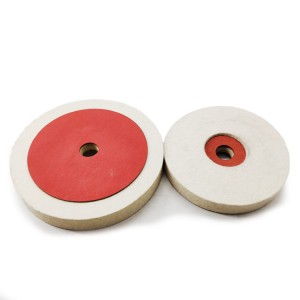One of the key areas affected by the new environmental standards is the sourcing of wool. To meet the requirements of sustainability, manufacturers are now required to ensure that the wool used in their products comes from responsible sources. This means working with sheep farmers who follow environmentally friendly farming practices, such as minimizing the use of pesticides and fertilizers, and promoting animal welfare. Some manufacturers are even going a step further by implementing traceability systems, allowing consumers to track the origin of the wool in their felt wheels. This transparency not only builds trust with consumers but also helps the industry as a whole to meet the new environmental regulations.
In the production process, new standards focus on reducing energy consumption and waste generation. Manufacturers are investing in energy – efficient machinery and adopting new production techniques to lower their carbon footprint. For example, some companies are using advanced felting processes that require less water and electricity, while also generating less waste. Additionally, efforts are being made to recycle and reuse materials in the production of wool felt wheels. Scrap wool and other by – products are being repurposed, either into new felt products or as raw materials for other industries, reducing the overall environmental impact.
The packaging of wool felt wheels is also under the spotlight. Environmental standards now encourage the use of biodegradable or recyclable packaging materials. Many manufacturers have started replacing plastic packaging with paper – based or plant – based alternatives. This not only reduces the amount of non – biodegradable waste but also appeals to environmentally conscious consumers.
However, complying with these new environmental standards is not without costs. Manufacturers need to invest in new technologies, training, and certification processes, which can increase production costs. To offset these costs, some companies are looking for innovative ways to improve the efficiency of their operations and reduce waste. For example, by optimizing their supply chain, they can reduce transportation costs and emissions.
As consumers become more environmentally aware, they are increasingly demanding products that are produced in an eco – friendly manner. Wool felt wheel manufacturers who can meet these new environmental standards are likely to gain a competitive edge in the market. The new environmental standards are not just a regulatory requirement but also an opportunity for the industry to transform and move towards a more sustainable future. With continuous innovation and collaboration, the wool felt wheel industry can rise to the challenge and contribute to a greener world.
Post time: Jun-05-2025

